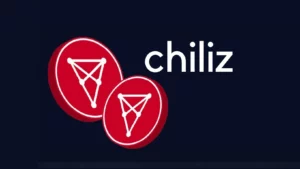
Bitcoin Mining Faces Rising Costs as Hashprice Boosts Provide Only Temporary Relief
The recent rise in hash price has brought temporary relief to the troubled bitcoin mining industry. However, the underlying issue of rising costs remains a pressing concern that miners will need to adapt to in order to stay afloat.
According to a report by CoinShares, the European asset manager, Bitcoin’s mining difficulty hit a new peak of 109.78 trillion, climbing 1.16% in Sunday’s latest adjustment. This represents a staggering 24% increase over the past 90 days and a whopping 52% rise during the last three months of the year. On the other hand, Bitcoin’s hash rate also crossed the 800 EH/s threshold this month for the first time, signaling the network’s solid performance.
While these indicators demonstrate a strong network, miners are facing significant challenges due to the halved block rewards and increased difficulty, which have squeezed their profitability. The recent boost in hash price has brought temporary relief to the industry, but it is expected to be short-lived.
The report highlights that cost-of-production pressures will continue to rise, driven by fierce competition for land and power resources. Hyperscalers, offering more profitable alternatives, are outbidding miners, ultimately driving up operational costs. Additionally, machine prices, closely correlated with Bitcoin’s value, are set to increase, amplifying capital expenditures and depreciation expenses.
In response, miners are exploring diverse strategies such as holding onto their bitcoin or exploring artificial intelligence (AI) partnerships. These new ventures may temporarily slow down BTC production but open new revenue streams. CoinShares has identified firms like TeraWulf and Cipher as well-positioned to capitalize on AI opportunities due to their strategic relationships with energy companies and significant investments in clean energy.
However, the financial impact of these ventures is not expected to materialize quickly. Instead, miners are turning to debt markets that remain liquid, encouraging them to issue new debt despite rising interest expenses and risks of insolvency looming large. Public miners like Argo face heightened risks due to negative shareholder equity and limited fundraising options.
It’s worth noting that the average cash cost of mining Bitcoin rose to nearly $55,950 in Q3, a 13% increase from Q2, with total costs, including non-cash expenses, climbing to roughly $106,000. Companies like TeraWulf have emerged as low-cost leaders, aided by reduced debt expenses, while others, such as Riot and Marathon, achieved quarter-over-quarter production growth.
In the face of these daunting challenges, it remains to be seen how miners will adapt and find ways to maintain their operations in a highly competitive environment.
Source: cryptopotato.com


